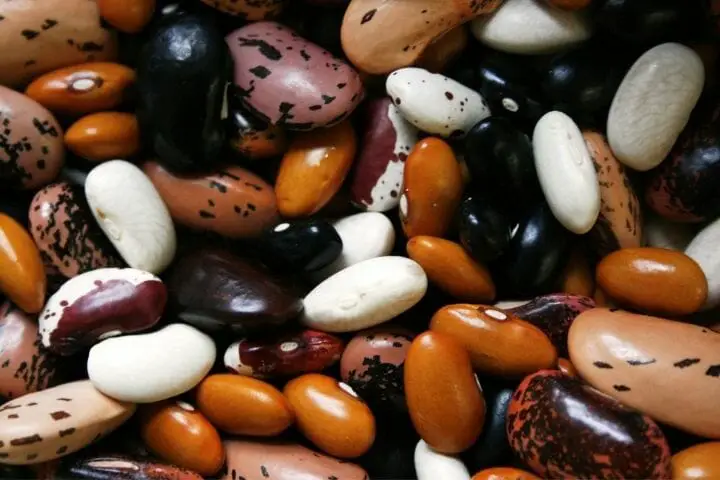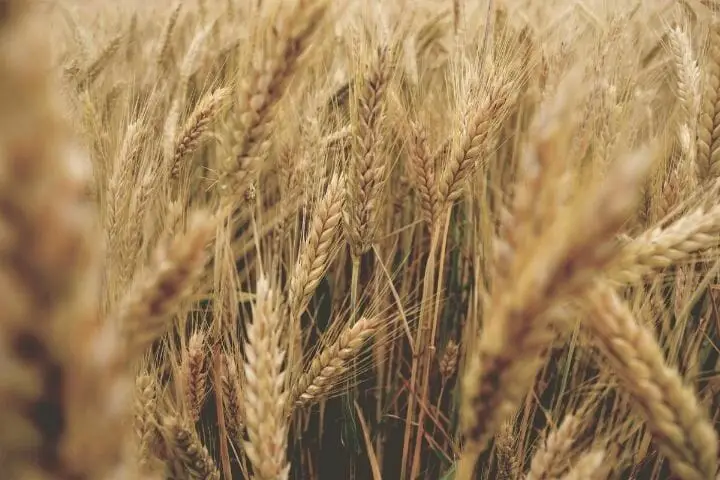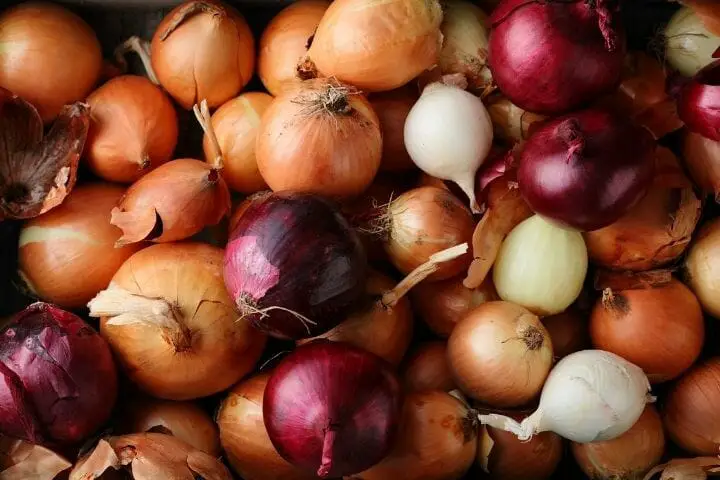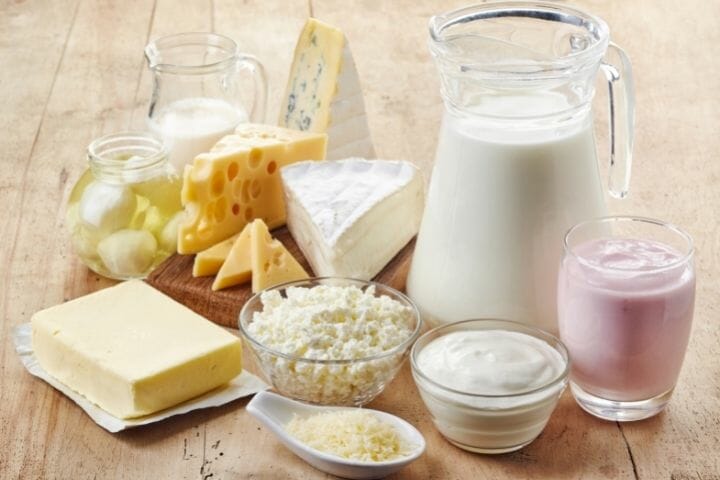Bloating is an uncomfortable occurrence that happens primarily due to diet and hormonal changes. Here are 10 foods that cause bloating for you to avoid.
Contents
Bloating of the stomach is an occasional occurrence that almost everyone experiences at some point in their life. Bloating can also be addressed as gassiness or abdominal discomfort. According to research studies, about 15-30% of the American population suffers from bloating symptoms regularly.
Sometimes the patients can suffer from bloating even when they are not eating excess food. Bloating can be severe in some cases. People that suffer from irritable bowel syndrome frequently experience bloating as a symptom.

About 10-15% of the American population suffers from irritable bowel syndrome. In this segment today, we will talk about the foods that increase bloating. You can avoid eating these foods or reduce their consumption to not experience bloating.
Foods That Cause Bloating
Bloating is a medical condition when your belly feels enlarged or swollen after eating meals. Bloating can be caused by various issues such as gas formation or some other gastric problems. Bloating largely depends on the diet of the person. It can also be a sign of developing a severe medical condition.
Here we will talk about some of the food items that contribute to bloating:-
#1 Beans
Beans are a type of legume. They are considered healthy as they are rich in proteins and carbohydrates. You can also find a good amount of fiber in them. They also have an abundant quantity of other vitamins and minerals in them.
The reason why beans are a contributor to bloating is that they also have sugars in them. These sugars are also called alpha-galactosides. Alpha-galactosidase are a part of a particular group of carbohydrates, also known as the FODMAPs.
FODMAPs stands for fermentable oligo di-monosaccharides and polyols. This type of carbohydrate is present in the form of short chains. Due to their unique design, these carbs can escape the digestion process. Since they are not digested, they get accumulated in the gut and the colon and produce gas as a byproduct in our stomach.
FODMAPs are healthy and fuel people who have a very active lifestyle. However, if you are a person suffering from irritable bowel syndrome, then these carbs are responsible for bloating. These carbs ferment differently in such people and form a gas that causes discomfort, diarrhea, cramps, or flatulence. If you still want to eat beans without developing gastric issues, you must either soak them or sprout them before cooking them.

#2 Lentils
Lentils again fall under the category of legumes like beans. Lentils are richer in iron, copper, and magnesium. Apart from these, they are also high in proteins, fiber, and particular carbs. People with a sensitive digestive system can experience bloating because of their high fiber content.
In most cases, people who don’t regularly consume fiber or are not in the habit of eating a lot of fiber can develop a sensitivity to it. Just like beans, lentils also have FODMAPs in them. They can also be the contributing factor to excess gas production.
Like beans, you can also soak lentils to make them gentler on your digestive system.
#3 Carbonated Drinks
These drinks are among the most common factors that cause bloating in your system. They do so because they contain high amounts of carbon dioxide, which is a form of the gas itself.
Each glass or bottle of these drinks has a large amount of gas in them. Drinking such beverages will not produce gas in your system, but you already consume readymade gas. The gas that cannot escape your system remains trapped in your body. This also leads to cramping and bloating.
#4 Wheat
You may find wheat to be a controversial subject on this list. But what is on this list is mainly because a protein present in it is known as gluten.
Wheat has a very high consumption all over the world. It is also part of many other recipes that are consumed by a majority of the population, such as slices of bread, pizza, plates of pasta, tortillas, and so on. Wheat is also an essential part of sweets and baked goods such as cakes, biscuits, pancakes, waffles, and so on.
Some people suffer from celiac disease, which is also termed gluten sensitivity. People who suffer from this condition experience bloating, stomach pain, gas, diarrhea, and so on. If they consume high amounts of gluten. Again wheat also belongs to the FODMAPs family that causes digestive issues.

#5 Vegetables
Some specific vegetables belong to the same family, and they can cause some gastric problems or issues for you. Some of these vegetables are cauliflower, broccoli, sprouts, cabbage, and several other vegetables of the same kind.
These vegetables are pretty healthy and good for your fitness, but they also contain a decent amount of FODMAPs. You will also find essential nutrients like vitamin C, vitamin K, iron, potassium, and fiber in them.
However, there is a way to help you reduce the bloating effect of these vegetables. If you cook these vegetables for a long time, some of their nutrients will evaporate, and they will be much easier to digest.
#6 Onions
Onions are vegetables that grow underground. They are also known as bulb vegetables. They have a strong taste, and only a few people can consume them in large quantities. You will often find them as primary ingredients in some recipes or served with side dishes and salads.
People consume them in a lesser quantity. Still, onions have higher amounts of fructans in them. Fructans are soluble fibers. These fibers can cause our stomach to bloat.
Some people are also allergic to some specific compounds present in onions. There was a research study done on 108 people out of 13.8% who were found to have this allergic reaction to raw onion. You can reduce the digestive discomfort caused by onions by cooking them effectively. Most of the harmful effects are caused by eating raw or uncooked onion.

#7 Barley
This is one of the most common cereals that people consume. Barley is a type of grain with high amounts of fiber. People usually consume it mainly for its nutritional value.
Other than fiber, you can also get other minerals and vitamins such as selenium, manganese, and molybdenum. People who are not used to consuming high fiber will experience bloating and stomach cramps from eating barley.
Barley also has protein like gluten in it. This creates a problem for people that are gluten intolerant.
#8 Rye
This is a type of cereal grain that is similar to wheat. Rye is an excellent source of fiber, phosphorus, manganese, copper, and vitamin B.
You will also get a fair amount of gluten from rye, among these nutrients. People that are sensitive to gluten should avoid consuming rye. Rye can be a significant source of bloating and gas in the stomach because of its gluten and fiber presence.
#9 Dairy
Products obtained from dairy are an excellent source of protein and calcium for individuals. The market is full of dairy temptations such as milk, cheese, curd, cream, ice cream, yogurt, butter, and so on.
A significant part of the world population cannot break down lactose in dairy products. 75% of the world’s population suffers from lactose intolerance. Dairy can cause major digestive issues to such people. Bloating, cramping, and gas are among the problems caused by dairy products.

#10 Apples
Apples are among the fruits that are consumed by the masses. People love them because they are tasty and nutritious at the same time. You get essential nutrients like vitamin C, fiber, and antioxidants.
Although, apples are also notoriously famous for causing the stomach to bloat. The main reason for this bloating is caused by the fructose and fiber present in them. Fructose and fiber can together block your large intestine. This blockage might be responsible for gas buildup in your intestine. It is easier for you to digest apples if you beat them cooked instead of eating them raw.
You might like to read: 11 Benefits of Green Tea
Things That You Can Eat Instead
- Instead of regular beans, you can eat the beans that are easier to digest for us. Beans such as black beans or pinto beans are more digestible after you soak them. You can also eat quinoa, meat, and grains instead of beans.
- You can eat light-colored lentils if you want to eat them at all. Light-colored lentils have less fiber than darker ones. Less fiber will also create fewer chances for bloating.
- The best thing you can drink instead of carbohydrate drinks is to drink water. Some other healthier alternatives to such aerated beverages are tea, coffee, and juices. If you can adjust to the taste, you can also go for still water as a better alternative.
- You can switch to gluten-free alternatives to wheat, such as quinoa, oats, buckwheat, coconut flour, and almond flour.
- Instead of the vegetables that have FODMAPs, you can eat their alternatives, such as spinach, cucumbers, lettuce, sweet potatoes, and zucchini.
- If you are a patient with bloating or irritable bowel syndrome, you can try using special herbs and spices that bring that taste to your food.
- There are different alternatives to barley available in the market, such as scotch barley or pearl barley. Some people may find this type of barley easier to digest. You can also replace it with oats, brown rice, quinoa, or buckwheat. All these cereals fall under the category of Pseudocereals.
- People that are lactose intolerant can go for easier-to-digest products such as fermented dairy like yogurt and butter.
- You can go for different fruits other than apples, such as bananas, grapefruit, oranges, mandarin, strawberries, and blueberries.

How Can You Prevent Bloating After Eating
You can altogether avoid bloating your stomach by adjusting your lifestyle a little bit. By following some simple tips and tricks, you can lead a healthy life such as:-
Eat less salt
You should avoid eating more salt in your food if you don’t want your stomach to bloat. Keeping your salt shaker away from the dining table can also be an excellent strategy to reduce your salt intake. Salt also leads to high blood pressure. The extra salt may also lead to water retention.
Don’t eat fatty foods
You should also avoid eating fatty foods in your diet. Fatty foods remain in your digestive tract for a longer time. More food in your intestines would cause your stomach to bloat.
You might like to read: Quick and Easy Healthy Meals to Prepare for Seniors
Exercise regularly
Walking regularly is among the simplest exercises that you can go for regardless of your age, physical condition, and so on. Exercising will burn all the excess food present in your intestines. Try to walk for 10-15 mins after each meal, and you will rarely feel bloated after that.
Eat slowly
If you are a fast eater or eat in a hurry most of the time, you can reduce your eating speed to reduce the chances of bloating. Swallowed food is harder to digest for us. This will result in bloating and gas buildup. Eating slowly will also reduce your food consumption.
Try and eat gas supplements
There are medicines or supplements available in the market that are suitable for reducing gas buildup. These special supplements will either increase your capability to digest food, or they will break down the food, so they are easier to digest. You can also use them to prevent flatulence or belching.
Go for probiotics
Probiotics enhance the number of good bacteria in your gut. These good bacteria will help you to digest the food. Good bacteria break down the food in your gut further, which will prevent you from bloating. They are either naturally found in some food items or consumed via special supplements. You can choose from either a multi-strain probiotic or a single strain probiotic.

Wrap Up
Bloating is a pretty common phenomenon that affects a large population. It is not always a severe condition. You can control and prevent this condition from affecting you by introducing small changes in your diet.
Your diet is the major thing that causes your stomach to bloat. If you change it, you will reduce the chances of bloating significantly.
We hope this information will help you avoid those items in your diet that cause bloating. If you have some experiences to share regarding bloating, or any other food items that you feel that we missed in our list, do write to us in the comments section.
If you found the content to be useful, please share it on your social media handles and in your groups.
